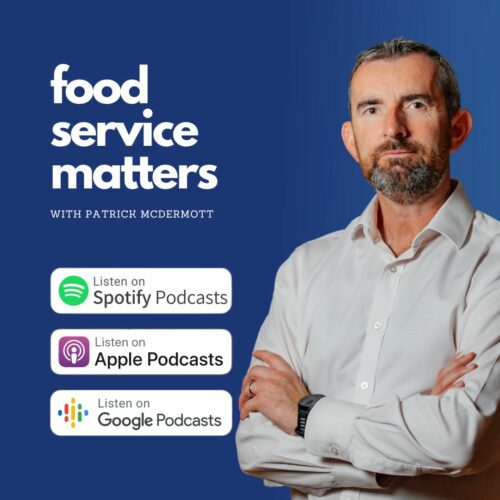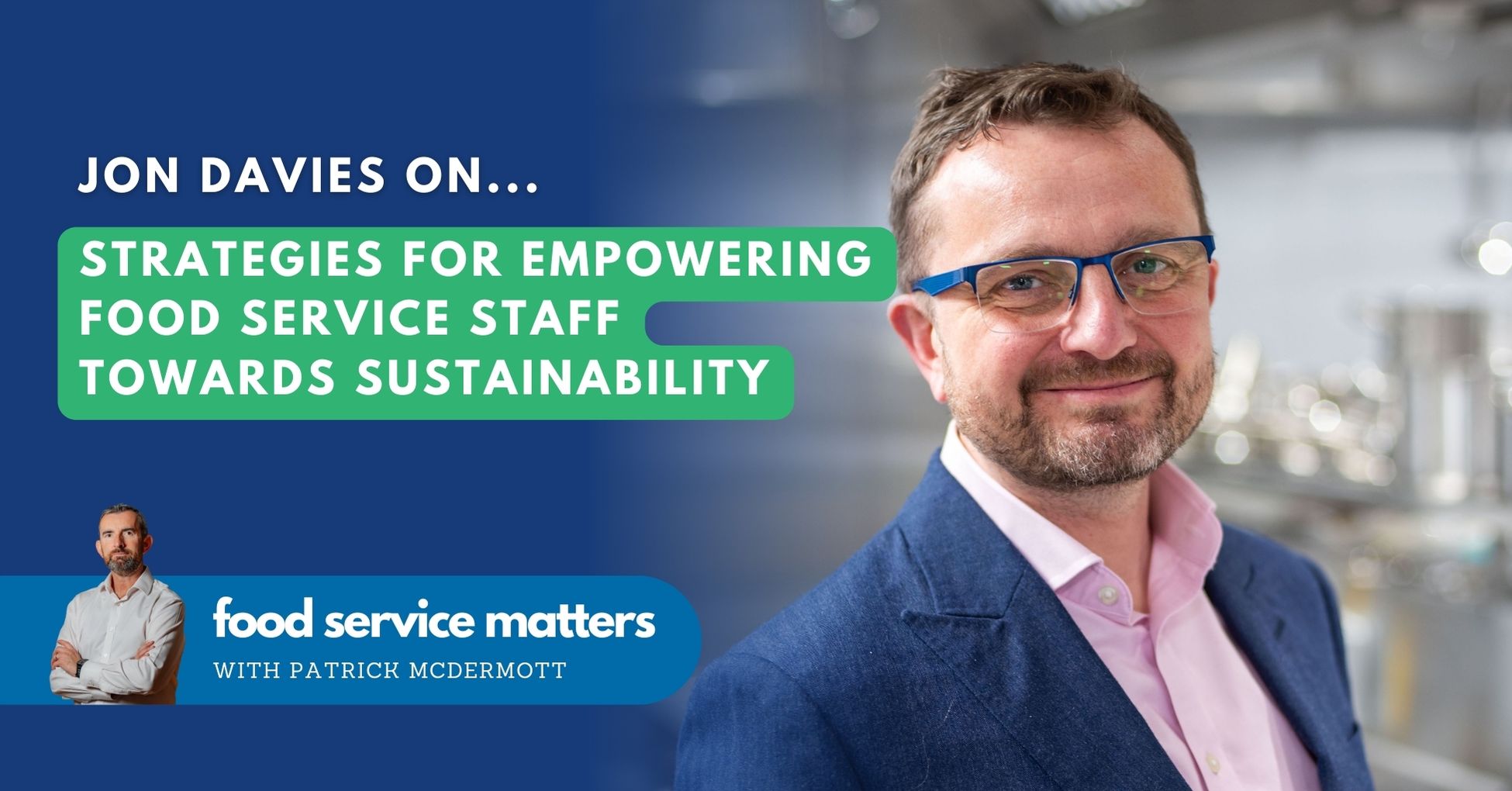In the food service industry, adopting eco-friendly practices isn’t merely a managerial decree; it requires active participation and enthusiasm from all team members. But how can businesses effectively rally their staff behind a sustainability mission?
In Season Two, Episode Three of the Food Service Matters podcast, host Patrick McDermott talks to Jon Davies, Managing Director of Levy UK & Ireland, a division of Compass Group that provides large-scale, customised food service solutions for major sports venues, entertainment arenas, events and conferences.
In this article, we explore the essential strategies Levy employs to empower its staff to drive real progress towards the company’s sustainability goals.
Reconnect with Nature
For many in hospitality, there is a disconnect between the dishes crafted and the origins of their ingredients.
Jon sheds light on this issue, explaining that the vast majority of chefs hail from urban backgrounds, whether in the UK or abroad, and are accustomed to having raw ingredients “delivered to them, vac-packed and pre-portioned into fillets of meat or fish, or pre-prepared vegetables.” Because of this process, kitchen staff often lack fundamental knowledge of how their produce has been grown and how animals have been treated.
At Levy, Jon prioritises bridging this gap by facilitating farm visits for staff members and fostering engagements with producers to understand their challenges and the industry’s environmental impact. By immersing teams in the realities of farming and cultivation, Levy encourages an appreciation for the intricate ecosystem underpinning food production. Such experiences serve as catalysts for more informed and conscientious sourcing decisions.
Cultivate Sustainability Champions
Jon emphasises the importance of instilling a deep understanding of sustainability principles among food service staff. Rather than imposing directives, Levy focuses on explaining why sustainability matters.
“You’ve got to break down all those barriers and get staff to recognise the decisions being made when they put a menu together,” he remarks. Teams are encouraged to understand the holistic considerations behind sustainable menu planning, extending beyond mere cost factors to encompass sourcing ethics and portion management. Only with this realisation can they actively contribute to the company’s sustainability agenda.
Jon has observed a notable cultural shift at Levy in the last couple of years, wherein “all of us – chefs, teams, management – are being included in the company’s sustainability mission because we see its power and importance.” Levy is now reaping the rewards of staff buy-in. This shared commitment has fostered a sense of pride among staff, aligning them with the company’s broader impact on both consumers and the planet.
Build a Culture of Environmental Responsibility
Central to Levy’s sustainability strategy is the integration of environmental consciousness into its corporate ethos, so all employees “talk proudly about the menu and approach we’re taking,” Jon says.
For this to happen, companies should communicate transparently about their sustainability metrics to ensure staff are aware of the tangible impacts of their collective efforts.
On this note, Jon underscores the transformative potential of seemingly minor steps. Citing Levy’s decision to make its signature burger 50% beef and 50% plant-based, Jon remarks that this move alone reduced the company’s entire carbon footprint by a couple of percentage points. Regular sharing of such metrics fosters a deeper appreciation for the ripple effects of sustainability practices throughout the organisation.
In essence, effective communication of company objectives, coupled with immersive educational experiences and transparent feedback mechanisms, enables food service businesses to galvanise their staff towards a shared sustainability mission.
By reconnecting staff to food’s origins, empowering them as sustainability innovators, and creating a culture of environmental accountability, food service businesses can transform sustainability from a mere mandate imposed from above into a collective endeavour, woven into the fabric of a company’s identity.
To listen to Patrick’s full interview with Jon Davies, check out the Food Service Matters podcast on Spotify, Apple Podcasts or Google Podcasts.
Patrick is CEO of DigiTally, which is playing an increasingly important role as an intuitive and interconnected simple food service software that helps save time, increase margins and combat food waste. Keen to learn more? Let’s talk! Book a 30-minute call with Patrick and get your demo set up today.




